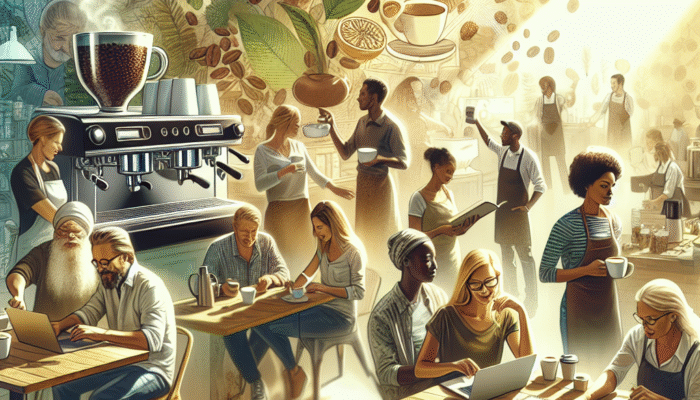
Coffee and Sustainability: How You Can Make Eco-Friendly Choices
Coffee is one of the most beloved beverages globally, but its production can have significant environmental impacts. From deforestation to water pollution, the journey of coffee from bean to cup can often leave a hefty ecological footprint. However, by making conscious choices, you can enjoy your daily brew while also supporting sustainable practices.
Why Sustainability in Coffee Matters
The coffee industry is facing several challenges that threaten both the environment and the livelihoods of farmers. Here are a few reasons why sustainability is crucial:
- Deforestation: Coffee cultivation often leads to the clearing of forests, which can disrupt ecosystems.
- Water Usage: Coffee processing can consume large amounts of water, affecting local water supplies.
- Climate Change: Coffee plants are sensitive to temperature changes, and climate change threatens their survival.
- Fair Trade: Many coffee farmers struggle to earn a living wage, making ethical sourcing essential.
How You Can Make Eco-Friendly Choices
Here are some practical steps you can take to enjoy your coffee sustainably:
1. Choose Certified Coffee
Look for coffee that is labeled as Fair Trade, Organic, or Rainforest Alliance Certified. These certifications ensure that the coffee was produced under environmentally friendly practices and that farmers received fair compensation.
2. Buy Whole Beans
Buying whole beans and grinding them yourself not only enhances flavor but also reduces packaging waste. Opt for brands that use recyclable or compostable materials.
3. Support Local Roasters
Local coffee roasters often prioritize sustainable practices and may source their beans more ethically. Plus, buying locally reduces the carbon footprint associated with transportation.
4. Practice Responsible Brewing
Use energy-efficient brewing methods, such as a French press or pour-over. If you‘re using an electric coffee maker, consider one with an auto shut-off feature to save energy.
5. Compost Coffee Grounds
Instead of throwing away used coffee grounds, compost them! They can enrich your garden soil and reduce waste.
Conclusion
By making informed choices, you can contribute to a more sustainable coffee industry. Every cup counts, and your decisions can help create a positive impact on the environment and the lives of coffee farmers. So, the next time you sip your favorite brew, remember that sustainability can be delicious!


